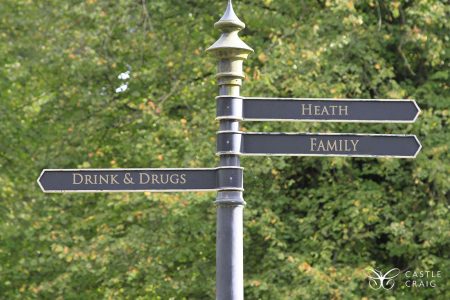It’s a common belief that, unlike alcohol, weed is hangover-free
This derives from the belief that alcohol can be a more harmful intoxicant than weed (also known as cannabis or marijuana). As pioneers in leading treatments for cannabis addiction, we know this is not the case.
Rehab Costs & Options for Alcohol | Drugs | Other addictions
How does marijuana cause a hangover?
If you smoke cannabis, you will know of the foggy sort of mornings after late-night smoking and know of the residual effects you feel the next day.
The more you smoke weed, the longer it will stay in your system – heavy users often test positive a month or longer after use. And, as long as the pot’s active ingredient is present in your system, you will be partly under the influence of drugs.
What does a marijuana hangover actually feel like?
- Feelings of sluggishness
- General haziness and fog / scattered mind
- Slow reactions / not feeling so awake
- Waking up feeling confused
- Some report headaches
Weed makes you angry
After using marijuana or having to go without a smoke do you experience an angry outburst? Have your friends ever told you to relax or chill?
Whilst recreational marijuana use is connected to feeling relaxed, many users actually report feeling irritable, short-tempered and even rage after smoking or eating edibles. These symptoms are also more prevalent during withdrawal.
Cannabis addiction
It might be difficult to believe that you might have a cannabis addiction, but the fact is that if you smoke every day or are a habitual smoker.
For some smoking weed might feel harmless, however, those who have certain traits or have a family history of mood disorders or psychosis should proceed with extra caution.
Ask yourself the following questions:
- Do you smoke weed daily or near daily?
- Do you experience cravings for weed?
- How much time is dedicated to sourcing, buying and smoking?
- Has your consumption increased over time?
- Do you use more than your original intended?
- Do you continue to use it despite the negative consequences?
If you have answered yes to the above, or spend a considerable amount of time and money purchasing weed on a weekly basis then it is likely you have an addiction.
Cannabis might sound funny to some people, but it is very serious, often leading to mental health conditions and disorders like increased anxiety and depression.
Cannabis Addiction Test
If you are concerned about your cannabis use, the following test can help identify if you would benefit from treatment.
Cannabis rehab
The truth is, the more you smoke, the more your brain depends on the supply of THC. So when you stop, your brain has to adjust to not having it.
This is an important process to break free of the cycle of addiction, but here at Castle Craig, we look into the core reasons of your addiction and the reasons why you choose to smoke in the first place (stress, anxiety, depression).
Alongside getting your body clean from THC, we work on the mental health disorders that linger so that you can build strong coping mechanisms and tools to prevent yourself from turning to the drug again.
Think you might need rehab for your cannabis addiction?
Scientific studies into the effects
An early study on the hangover effects of marijuana found that the effects were different to the acute effects of marijuana, commenting: “These apparent findings suggest that marijuana smoking can produce residual (hangover) effects the day after smoking.”
What’s more telling is that the marijuana used in the study was only 2.9% THC, which is much less potent than the weed on the market today, which is anywhere between 10% and 30%.
So, if such little THC can affect your senses the morning after, and then imagine what higher concentrations can do in the same time frame – there’s just more to process and metabolize.
What marijuana leaves behind
THC is a psychoactive compound, which gets you high and is actually a fat-soluble chemical that the body can store for days. And simple movements or exercises can release this THC back into the bloodstream long after consumption.
It’s important to note that regular smokers are known to have near-constant levels of THC in their system, which might explain why habitual smokers can exhibit symptoms of depression as activity levels decrease and somewhat interest in hobbies, social situations or work.
For any advice on cannabis addiction or substance misuse, get in touch with us – we’re here to help, always! Call 01721 546 263.


